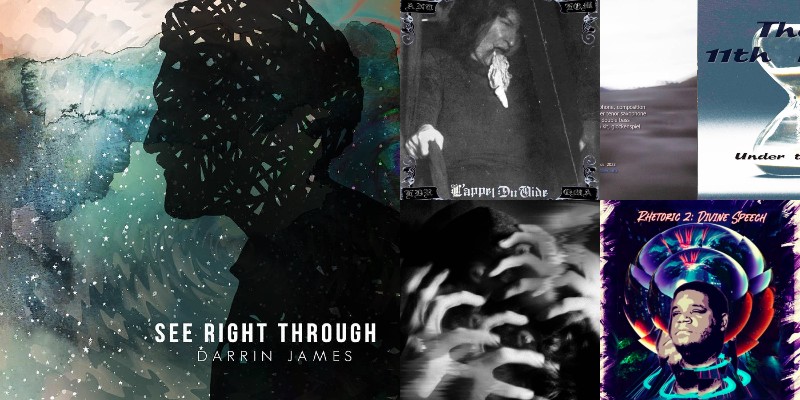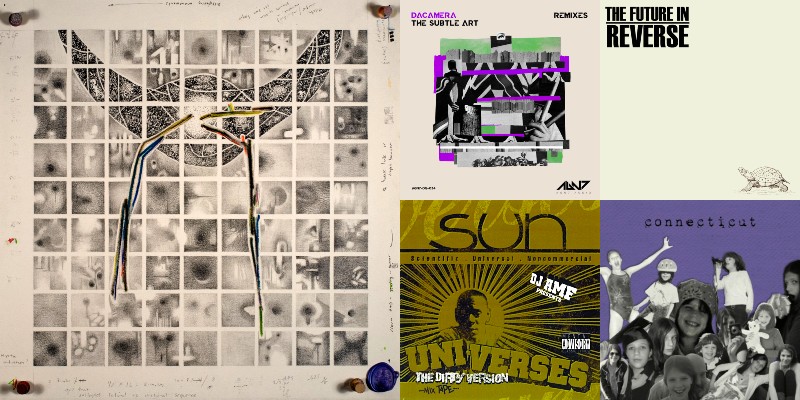Zingerman’s “Celebrate Every Day” cookbook offers recipes that correspond with the seasons and holidays

Picking just one recipe to make first from Zingerman’s Bakehouse Celebrate Every Day: A Year’s Worth of Favorite Recipes for Festive Occasions, Big and Small is a difficult decision.
Would it be something savory, like “The Works Grilled Cheese Sandwich” and “Tomato De-Vine Soup?”
Or would it be something sweet, such as the “Maize and Blue Cobbler” or “Not-Just-Chocolate Babka?”
The 75-plus recipes to choose from emphasize the seasons and holidays so there is a dish or dessert for every time of year.
The inspiration for the book stems not only from the seasons but also from COVID-19. For authors Amy Emberling, Lindsay-Jean Hard, Lee Vedder, and Corynn Coscia, the seasons include not only the big things but also the little things. One reason for this approach was that the pandemic changed many people’s outlooks and the ways they spend time. Despite the modifications to day-to-day life, food remained central—and even grew in importance—when the world stayed at home in 2020. As Emberling writes in the book’s introduction:
DIY Approach: Manchester Underground Music and Art Supports Local Artists Through Monthly Live Shows

Back in 1977, high school friends Steve Girbach and John Mooneyham bonded over listening to Rush, Judas Priest, and AC/DC albums after school.
Those listening sessions at Mooneyham’s house in Manchester eventually turned into serious discussions about forming a band and playing live shows.
It wasn’t until a few years after graduating from Manchester High School that Girbach and Mooneyham put their musical plan into action.
“Steve and I were talking and we said, ‘Why don’t we get some gear and we’ll put on shows and festivals?’ We had all these grand ideas people in their early 20s come up with,” said Mooneyham, who now co-runs the Manchester Underground Music and Art monthly concert series with Girbach.
“About a month later, Steve said, ‘I invited some guys over to your house to play some music and you’re gonna play bass.’”
Together, guitarist Girbach and bassist Mooneyham played in two cover bands, Allister and The DTs, and later hosted a music festival featuring 13 acts at a former amusement park in the Irish Hills.
Not long after that, The DTs called it quits and everyday life took over for Girbach and Mooneyham. What they didn’t realize at the time was that initial music festival helped lay the groundwork for what would become Manchester Underground Music and Art in 2019.
Comic Duet: Theatre Nova's "Fortune" is a rom-com with expert timing

This has been a chilly, wet, slippery, snowy winter, so it’s a perfect time to warm up with a rom-com—especially with Valentine's Day around the corner.
For Theatre Nova's production of Deborah Zoe Laufer’s Fortune, director Carla Milarch brings two talented actors together in a comical duet. It’s a good choice for Nova's tiny, sometimes cramped space. There are some lighting special effects, but most of the fireworks come from the actors who play two lonely people looking for love.
Madame Rosa is a fortune teller, like her mother. It’s a family business and a curse. Unlike other “fortune tellers,” Madame Rosa actually can look into the past and predict the future, but she'd rather be a secretary.
When not being Madame Rosa, she’s a lonely young woman named Maude who is afraid of what she can do and afraid to give up the business and do something about her life.
One day, a desperate young man demands that Madame Rosa read his fortune. He’s an awkward young accountant who has been regularly striking out in his attempts to find love. He wants to know what his future holds and doesn’t want it sugar-coated.
Friday Five: Darrin James, The Eleventh Hour, Paper Petals, Anteomedroma, MC Kadence

Friday Five highlights music by Washtenaw County-associated artists and labels.
This week features folk-rock by Darrin James, chamber jazz by The Eleventh Hour, dark ambient by Paper Petals, black metal by Anteomedroma, and hip-hop from MC Kadence.
A Search for Meaning: Nishanth Injam's new short-story collection hopes for "The Best Possible Experience"

What is “the best possible experience?” Is it subjective or objective? How does one find it? Does it fulfill or disappoint?
Nishanth Injam’s new short story collection, The Best Possible Experience, seeks to find out whether the best possible experience is everything that it is chalked up to be. The University of Michigan MFA alum’s characters endure losses, yet they nevertheless hold on to their longings. Those longings may or may not be their own, and sometimes their actions mask a deeper desire.
The characters in The Best Possible Experience live in or are from India. They seem to be at odds with something. Here is not there. A significant other or close relative is not present. Despite trying hard, “It wasn’t supposed to have been this way,” says Rafi, who lost his wife, in “The Sea.”
The characters who have left India struggle with being neither at home in the United States nor having a place that feels like their own in India: “Once you go, there’s nowhere to return.” When Sita travels from the U.S. to her village in India to visit her grandfather, Thatha, in “Summers of Waiting,” she reflects on how much time she has there and the way that time passes:
Friday Five: Latimer Rogland, Premium Rat, Jeremy Frey, S.U.N., DACAMERA

Friday Five highlights music by Washtenaw County-associated artists and labels.
This week features minimalism by Latimer Rogland, pop-punk by Premium Rat, power-pop by Jeremy Frey, hip-hop from S.U.N., and remixes of DACAMERA.
Who Has What: Connections Between College Students and a Visiting Professor Lead to Scandals in Kiley Reid’s New Novel, “Come and Get It”

Kiley Reid’s sophomore novel, Come and Get It, centers on the lives of college students, mostly juniors, seniors, and one super senior, plus a visiting professor. What starts out as a job for a resident assistant and a place to live for the three students in the suite next door gradually and unexpectedly escalates into several related scandals.
Reid, an assistant professor at the University of Michigan, is debuting Come and Get It during a January 30 event at the Ann Arbor District Library’s downtown location. Hosted by AADL and Literati Bookstore, it features Reid in conversation with Austin Channing Brown and doubles as the publication date of her new book.
With this book following her first novel, Such a Fun Age, which was the 2023 Washtenaw Read book, Reid reinforces her expertise in writing plot-driven adult fiction full of sharp insights into characters, their choices, race, materialism, and the very human emotion of humiliation. Reid’s situational humor in Come and Get It also brings laugh-out-loud moments via student pranks and misunderstandings that are both cringey and hilarious.
At the start of Come and Get It, Millie Cousins is returning to the dorms as a resident assistant (RA) following her year off to care for her mother Glory. This time she has a goal, which is saving up to buy a house in her place of choice, Fayetteville, where she is finishing school at the University of Arkansas. This setting has resonance for Reid because she lived there for a year before earning her Master of Fine Arts.
“Fayetteville is an incredible place and one of my favorite towns,” said Reid. “It’s beautiful and hilly. There’s an ease to living there and there are four true seasons. None of my characters are from Fayetteville, and they’ve all come there for very different reasons. I was interested in what would bring them there and what they were expecting to get out of it.” In Come and Get It, what the characters end up getting out of it is not what they expect.
Sense of Adventure: Instrumental Duo Mindful Dynasty Experiments With Different Genres on “The Barn Waltz” Album

When it comes to creating music, Mindful Dynasty embraces a choose-your-own-adventure approach on The Barn Waltz.
The South Lyon instrumental duo of Jason Wiseley (guitar, percussion, strings) and Toshana Grim (bass, strings) experiments and improvises with several genres—ranging from psych rock to EDM to flamenco—on its latest double album.
“It’s like going through an adventure, and there are highs and lows; there are also fast parts and slow parts. There are parts that are a little funky and maybe ones that make you laugh a little because there’s a wonky note,” Grim said.
“There are also parts where you might think, ‘This is so beautiful.’ That’s just life—in my opinion—because it is an adventure. The more you can just relax and go with the flow, the more fun you have.”
That carefree attitude and creative mindset flow throughout The Barn Waltz’s 17 tracks, which also feature elements of metal, classical, and funk interspersed with film samples.
“I write for everybody, but in my mind’s eye, it’s [especially] for somebody who plays an instrument. … I just want people to feel inspired. I want people to [hear] our music and think, ‘Oh Jason’s goofy, I can do that, too,’” said Wiseley, who workshopped the album’s tracks live with Grim during a past residency at Zerbo’s Market & Bistro in Commerce Township.
“Part of the reason why The Barn Waltz is dark and has all the movie samples is because I wanted to juxtapose the pretentiousness of the guitar playing. I wanted to put in this silly stuff and put in all of the dance music to pull back the idea that to have that level of fun playing music requires you to actually not have any fun at all.”
I recently spoke with Wiseley and Grim about their backgrounds, the origin of Mindful Dynasty, the evolution of their sound, select tracks from The Barn Waltz, the creative process for the album, and upcoming plans.
Memorialize and Remember: Grey Rose Grant's folk opera "Little Histories" explores the death ritual

Grey Rose Grant puts all of themself into projects.
Their 2019 folk opera Michigan Trees came out of Grant's experience as a trans-femme person. The 2023 chamber-rock opera The Precipice was based on Grant's poems and songs along with the journals of Karl Ronneberg, their co-founder of Fifth Wall Performing Arts. Even Grant's new work, Little Histories, about a mortician looking back on the life events that made him turn to his profession even as they prepare to host a funeral for a former lover, has its roots in the composer, performer, and librettist's North Carolina childhood.
"Little Histories is deeply connected to personal experience," Grant says. "Back in the day I was surrounded by literary nerds and we went through an autofiction phase which has for sure affected how I want to tell stories within the medium of theater. Every little story told in Little Histories has some truth to it: memories of two of my grandparents' funerals; a memory of witnessing a bird fly into a window in high school; the pet cemetery we had in the woods behind my childhood home. That said, these memories are swirled together, misremembered, and injected with a healthy dose of retold mythologies, the story of the birth of the modern American funeral industry, and more. I enjoy beginning from the personal and moving outward from there."
Fifth Wall Performing Arts' production of Little Histories runs January 26-28 at Canterbury House in Ann Arbor, and I asked Grant, a 2016 graduate from the University of Michigan who currently works at Ypsilanti's Riverside Arts Center, about their latest DIY folk opera.
Monday Mix: Father Dukes, Lo Dazz, Ownsey, Terminus, DykeChow

The Monday Mix is an occasional roundup of mixes, compilations, podcasts, and more by Washtenaw County-associated artists, DJs, radio stations, and record labels.
For this edition, we have mixes from Father Dukes, Lo Dazz, Ownsey, Terminus, and DykeChow.


































